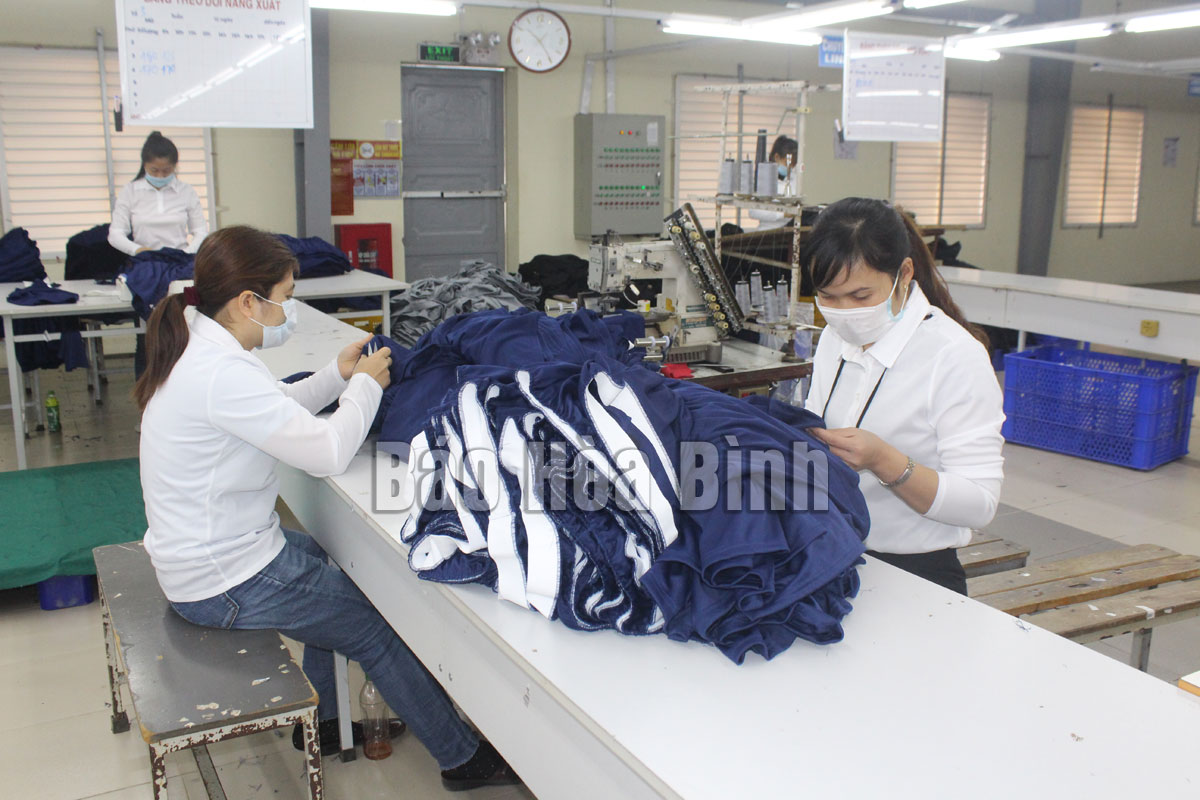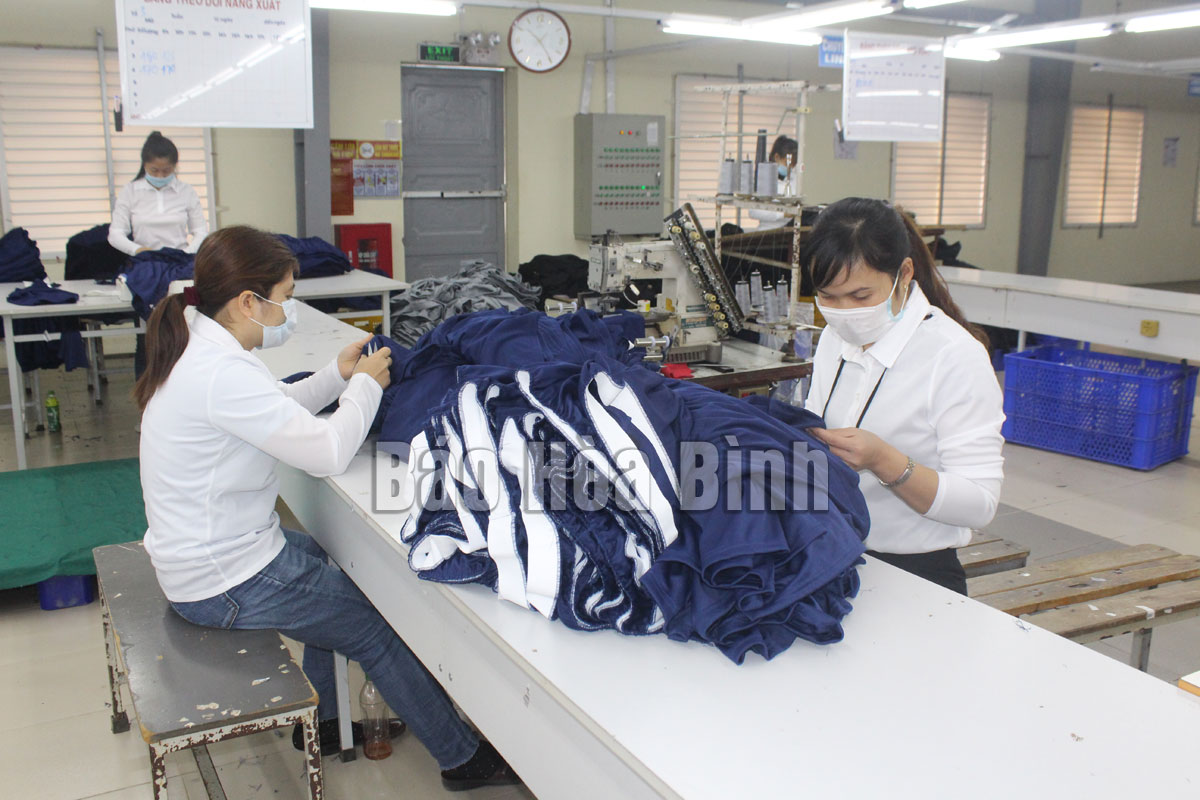
(HBO) - In order to create favorable conditions for the private economy to develop and encourage the development of businesses, from 2018 to 2020, the People's Committee of Hoa Binh province directed the implementation of the Law on Supporting Small and Medium Enterprises (SMEs) and applied mechanisms and policies to promote efficient operations of enterprises, thereby improving the local business and investment environment.
Ho Guom Group's
garment factory in Tan Lac district enjoys the tax support policy of the
province, helping it to overcome difficulties.
In recent years, enterprises in the province
have grown in both quantity and quality. Every year, the number of newly
established enterprises increases. By the end of 2020, the province had 3,770
enterprises with a total registered capital of more than 47 trillion VND (2.05
billion USD). Of which, there are 3,527 SMEs, accounting for over 97 percent of
the total number of enterprises with registered capital of nearly 31.5 trillion
VND.
In order to effectively implement the Law on
Support for SMEs, the provincial People's Committee issued Plan No.
158/KH-UBND, dated December 6, 2018 on supporting SMEs in the province. The
plan specifies solutions, mechanisms, preferential policies for the SMEs and
assigns specific tasks to departments, agencies, sectors and localities to help
develop and support SMEs.
With the participation of administrations at all
levels and sectors, it has created a driving force to help businesses thrive.
Accordingly, the provincial People's Committee has urged localities to promote
technological assistance by guiding enterprises to apply management systems,
productivity improvement tools. The province also provides supports for
enterprises to implement origin traceability systems, apply good agricultural
practices, and develop organic agricultural production.
According to data released by the Department of
Planning and Investment, by 2020, the total revenue of SMEs in the province is
estimated at 49.6 trillion VND (2.16 billion USD) with the average income of
employees is from 4.5 to 6.5 million VND per month./.
According to data from the Hoa Binh Provincial Party Committee, the industrial production index for the first six months of 2025 is estimated to have increased by 20% compared to the same period last year. This marks the highest year-on-year growth rate for this period since 2020.
In the first six months of 2025, Hoa Binh province’s export turnover was estimated at 1.145 billion USD, marking an 18.11% increase compared to the same period in 2024. Import turnover was estimated at $ 804 million, a 17.15% increase, which helped the province maintain a positive trade balance.
The lives of the ethnic minority farmers in Tan Lac district have gradually improved thanks to the new directions in agricultural production. This is a testament to the collective strength fostered through the professional associations and groups implemented by various levels of the district’s Farmers’ Union.
With the motto the "product quality comes first,” after nearly one year of establishment and operation, Muong village’s Clean Food Agricultural and Commercial Cooperative, located in Cau Hamlet, Hung Son Commune (Kim Boi district), has launched reputable, high-quality agricultural products to the market that are well-received by consumers. The products such as Muong village’s pork sausage, salt-cured chicken, and salt-cured pork hocks have gradually carved out a place in the market and they are on the path to obtaining the OCOP certification.
In the past, the phrase "bumper harvest, rock-bottom prices" was a familiar refrain for Vietnamese farmers engaged in fragmented, small-scale agriculture. But today, a new spirit is emerging across rural areas of Hoa Binh province - one of collaboration, organisation, and collective economic models that provide a stable foundation for production.
Maintaining growing area codes and packing facility codes in accordance with regulations is a mandatory requirement for agricultural products to be eligible for export. Recently, the Department of Agriculture and Environment of Hoa Binh province has intensified technical supervision of designated farming areas and packing facilities to safeguard the "green passport" that enables its products to access international markets.



